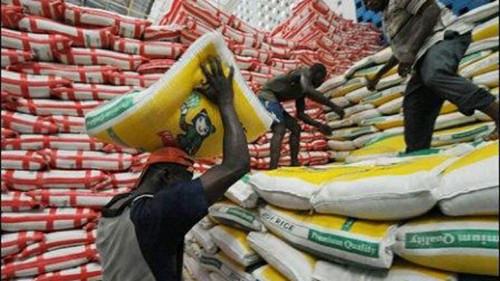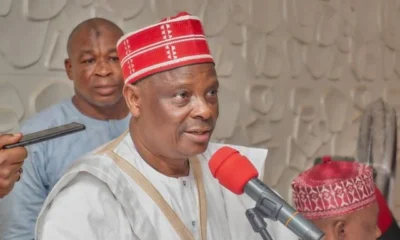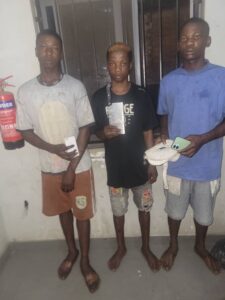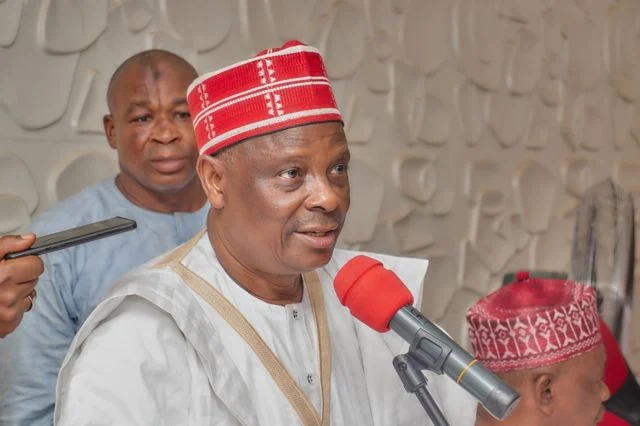Farmers and other stakeholders have expressed disapproval of the over N1.25tn government budget allotted for the government Ministry of Agriculture and Food Security in three years to handle the sector, citing the high costs of food goods in the market despite their availability.
They puzzled why food costs had risen despite being readily available, even though they noted that there was little correlation between food prices and federal expenditures for agriculture.
Despite the over N1tn federal agriculture budgets in 2022, 2023, and 2024, farmers under the auspices of the All Farmers Association of Nigeria expressed concerns about the devaluation of the naira, explaining that it was a significant issue that had made food unaffordable.
The concerns by farmers were further amplified by the Abuja Chamber of Commerce and Industry which declared on Saturday that the persistent hike in food prices was currently worsening poverty levels across the country.
Data obtained by our correspondent from the Budget Office of the Federation indicated that while the total budgetary allocations to the agriculture ministry during the three years of 2022, 2023 and 2024 were over N1.25tn, the budgets, however, declined consistently on an annual basis.
In 2022, the agriculture ministry got the approval of N71.84bn as personnel cost, N3.7bn for overhead, and N386.65bn for capital projects, making a total allocation of N462.2bn.
The total budgetary allocation dropped to N426.99bn in 2023, as personnel cost was N80.94bn; overhead, N4.5bn; while capital project allocation was N341.6bn.
There was a further drop in the ministry’s 2024 budget, as its total allocation was N362.94bn, comprising personnel cost of N102.1bn, overhead was N8.1bn, while the capital project was put at N252.7bn.
But the President, All Farmers Association of Nigeria, Kabir Ibrahim, said the budgets have had little impact on food prices, as the commodities have remained high despite the hundreds of billions of naira budgets to the agriculture ministry, whether in states or at the federal level.
On why the budgets seem not to have impacted food prices across the country, the AFAN president explained that though there is some level of food availability in Nigeria, the food items were unaffordable.
“You should look at food availability and not the cost of food. Yes, there is a relationship that when there is availability and demand, there could be affordable prices, but in Nigeria, I don’t think that relationship holds because the devaluation of the naira has caused so much turbulence.
“Many things are astronomically high based on our income and the value of our currency. The turbulence in our economy today is also due to the devaluation of the naira,” he stated.
Asked whether there is food availability in Nigeria currently, Ibrahim replied, “Honestly I had this argument with some people on Good Morning Nigeria on NTA last week Monday. Now, go to any food market and ask them for food.
“You will find out that there is always food but it is very costly. Have you searched for any food item and it is not available? Except probably the vegetables now, and this is because most of us don’t practice greenhouse farming, but the open production of vegetables and the rainy season are not supportive of that.
“So you may find a scarcity of tomatoes, peppers and all that. But this is normal, we have always had it like this during similar periods when there was rain. Otherwise, you can’t say that you went to the market and there is no rice, beans, etc. They are there now but they are costly.
“Therefore what we are experiencing is lack of affordability, not lack of availability. That is the difference. We have been talking about attaining food security and this means that food has to be available and affordable. Once it is not affordable for you and me, then it is as good as not there.”
Kabir, however, noted that the reduction in budgetary allocations between 2022 and 2024 had no significant correlation with the high cost of food items in the market.
“I don’t think there is any nexus between the drop in the national budget and the cost of food, because if you ask yourself, what is the performance of the budget so far? How much of the budget has been released to the agriculture ministry?
“So the Federal Government is meant to create an enabling environment for the country, though farming activities take place in the states and Local Governments. When you look at the budget details, is there anywhere in it where farmers are given money to go and produce food?
“The government itself doesn’t have a farm. Also, when you look at this year’s budget, we are now in June and I don’t think that we have had up to 15 per cent of budget performance,” Ibrahim stated.
He also noted that the total agriculture budget of both the federal and state governments must be considered when using budgetary allocations to match food availability and affordability across the country.
Ibrahim said, “All the states, Local Governments and the Federal Government have to work together on the food system to make agriculture work in Nigeria. Agriculture is a rural vocation; go to the United States, is there widespread agriculture in Washington DC? It is more pronounced in the rural areas.
“What about in England, is it that pronounced in London? So the thing is that we need to look at this issue very seriously. All the states in the federation have to work together to make agriculture work in Nigeria. That is the essence of the Council on Agriculture.
“And when they meet annually they get all the commissioners of agriculture to come in, make contributions and then there is a communique which should contain all the comments and contributions of all the states. So that when you are running a policy, it will be a policy that will be accepted by all because everybody has contributed.”
The Abuja Chamber of Commerce and Industry declared on Saturday that the persistent hike in food prices was worsening poverty levels nationwide.
ACCI’s President, Emeka Obegolu, SAN, said the situation was also affecting small-scale businesses adversely, adding that basic meals are becoming unaffordable to most citizens nationwide.
“The Abuja Chamber of Commerce and Industry expresses deep concern over the persistent rise in commodity prices, which is adversely affecting small-scale business owners and escalating poverty levels in the country.
“The surge in prices of essential food items such as rice, beans, cassava flour, tomatoes, pepper, onions, and others has aggravated the plight of the average citizen, rendering basic meals increasingly unaffordable for many households,” he said in a statement issued in Abuja.
The chamber’s president said official records from the National Bureau of Statistics indicate a staggering 35.41 percent food inflation rate in May 2024.
“However, on-ground observations suggest that the true food inflation rate exceeds 50 per cent, highlighting the severity of the situation and its dire impact on livelihoods.
“Experts attribute this economic hardship to the drastic depreciation of the national currency, the naira, which has significantly eroded citizens’ purchasing power. The resulting exchange rate volatility has disrupted businesses, increased production costs, and thwarted projections for economic growth,” Obegolu stated.
With an estimated 24.7 million individuals affected by food and nutrition insecurity across 26 states, including the Federal Capital Territory, urgent action is imperative, the chamber explained.
Obegolu, however, stated that the chamber had been providing support services in the area of training and advocacy to help local businesses navigate challenges and seize opportunities in the food sector to impact its members.
He said the distressing situation has made necessities such as food, housing, and healthcare increasingly unattainable, pushing numerous households to the brink of poverty and extreme deprivation.
The NBS in one of its reports in 2023, stated that Nigeria already had 133 million people living in multidimensional poverty before the recent economic challenges. However, there are growing concerns that this number has swelled over the past eight months.
In the past, staple foods like cassava flour (garri) and beans served as affordable options for the common man. However, the current scenario paints a starkly different picture, with prices skyrocketing beyond the reach of the average citizen.
A measure of beans in the Federal Capital Territory and its environs, for instance, now costs between N2,000 to N2,500, while garri is priced between N1,200 to N2,000. The affordability of rice, a widely consumed staple, has also been severely hit by inflation.
Obegolu emphasised the urgent need for government intervention to address the escalating food crisis warning that failure to act promptly could lead to a state of malnutrition and further aggravate the nation’s socio-economic challenges.
“Food is a fundamental necessity of life, and its affordability directly impacts the well-being of citizens. The escalating food inflation crisis poses a severe threat to food security and exacerbates poverty levels. The government must take decisive action to mitigate this crisis and alleviate the suffering of the populace,” he said.
The ACCI president further highlighted the adverse effects on the business community, particularly farmers and agricultural product sellers, who are grappling with disrupted operations due to the prevailing economic conditions.
“ACCI calls for urgent measures to stabilise food prices, enhance food security, and alleviate the economic burden on Nigerians, thereby fostering sustainable socio-economic development within the country,” Obegolu stated.
Earlier reports have it that Nigerians were finding it more difficult to feed themselves, as food inflation rose to 40.66 percent in May.
This, according to the report, was as the cost of food rose by 61 per cent from 25.25 per cent in June 2023 to 40.66 per cent in May 2024, highlighting a steady rise in the cost of living.
This is according to an analysis of the latest Consumer Price Index and Inflation report released by the National Bureau of Statistics.
The CPI measures the average change over time in the prices of goods and services consumed by people for day-to-day living.
A breakdown of the data, as captured in the report, showed that the price of food commodities increased steadily from 25.25 per cent in June, to 26.98 percent in July, 29.34 percent, 30.64 percent in August, 31.52 per cent in September, 31.52 percent October, 32.84 percent in November and 33.93 percent as the end of December 2023.
The rate further increased to 35.41 per cent in January, 37.92 percent in February, crossed the 40 percent mark in March, 40.53 percent in April and 40.66 percent in May.
NBS said the rate rose to 40.66 percent in May, compared to the 24.82 percent reported in the same month last year — indicating an increase of 15.84 percent points.
The bureau said semovita, oatflake, yam flour prepackage, garri, bean, etc (which are under bread and cereals class), Irish potatoes, yam, water yam, etc (under potatoes, yam and other tubers class), contributed to the year-on-year increase in the food inflation rate.
Other contributors are palm oil, vegetable oil, etc (under oil and fat), stockfish, mudfish, crayfish, etc (under fish class), beef head, chicken-live, pork head, and bush meat (under meat class).
“The food inflation rate in May 2024 was 40.66 per cent on a year-on-year basis, which was 15.84 per cent points higher compared to the rate recorded in May 2023 (24.82 per cent),” the bureau stated.
Reacting on the development, the National Vice President of the Nigerian Association of Small-Scale Industrialists, Segun Kuti-George, said the amount budget was not sufficient to tackle the rising food shortage in the country
He said, “I will be sincere with you, I do not have access to the specific figures. However, I know that the amount invested won’t be sufficient to fully address the issue, it is not going to even scratch the surface, considering our food import bill is even higher.
“Nevertheless, it’s a step in the right direction and will help alleviate the food shortage to some extent. While I don’t have the exact figures, it’s clear that the investment will benefit the intended recipients – farmers and food producers, it is a positive development.”
Credit: The Punch

 BIG STORY3 days ago
BIG STORY3 days ago
 BIG STORY3 days ago
BIG STORY3 days ago
 BIG STORY4 days ago
BIG STORY4 days ago
 BIG STORY4 days ago
BIG STORY4 days ago
 BIG STORY3 days ago
BIG STORY3 days ago
 BIG STORY3 days ago
BIG STORY3 days ago
 BIG STORY4 days ago
BIG STORY4 days ago
 BIG STORY4 days ago
BIG STORY4 days ago


























